How to Handle Late Rent Payments Without Conflict: A Complete Guide
Late rent payments are one of the most common challenges property managers and landlords face. While it’s essential to uphold the terms of the lease, maintaining a positive relationship with tenants is just as important. Addressing late rent payments tactfully can lead to better long-term relationships and fewer disputes. This guide will explore how landlords and property managers can effectively handle late rent payments while minimizing conflict.
Understanding the Causes of Late Rent Payments
Before addressing how to deal with late rent payments, it is essential to understand why they occur. Rent payments may be delayed for various reasons, and not all are due to negligence or irresponsibility. Some common causes include:
Financial Hardships
Unexpected financial difficulties are one of the most common reasons tenants fail to pay rent on time. Whether it’s job loss, medical bills, or unforeseen emergencies, financial instability can affect a tenant’s ability to meet rent deadlines.
Lack of Organization
Some tenants may simply forget the due date for rent payments, or they may not be clear on when the rent is due. Poor money management or lack of an organized system to handle monthly payments can also contribute to delays.
Payment Processing Issues
In some cases, tenants may have made the payment on time, but issues with the landlord’s or property management’s payment system can cause a delay in processing. These problems can occur with traditional checks, online systems, or even wire transfers.
Disputes Over Maintenance or Property Conditions
Tenants may hold back rent payments due to unresolved issues with the property, such as maintenance problems or dissatisfaction with the living conditions. While this is not a legitimate reason to withhold rent, it’s important to understand the tenant’s perspective and address their concerns promptly.
Temporary Circumstances
Sometimes, tenants may experience a one-time delay due to vacations, travel, or other short-term situations that prevent them from making timely payments.
Understanding these causes helps landlords approach the situation with empathy, ensuring that any follow-up or resolution is handled in a constructive manner.
Clear Lease Agreement Terms for Rent Payment
One of the most effective ways to prevent confusion and late payments is to have a clear and comprehensive lease agreement in place. A well-written lease should specify:
Rent Due Dates
The lease should clearly state when rent is due, whether it’s the first day of the month, a specific day, or a grace period. The lease should also include the consequences of late payment, such as late fees or potential eviction.
Late Payment Penalties
Clearly outline the penalties associated with late payments. This includes the amount of any late fees, the timeframe in which these fees are incurred, and any additional consequences for prolonged non-payment.
Payment Methods
Specify the acceptable methods of payment, such as checks, bank transfers, or online payment platforms. Ensuring that tenants understand how to pay rent can reduce confusion and help them make timely payments.
Grace Periods
If you offer a grace period, clearly define its length. A grace period is typically a few days after the due date during which no late fee is charged. This flexibility can help tenants avoid penalties for minor delays.
When your lease agreement is clear and detailed, both the landlord and tenant understand their responsibilities, reducing the likelihood of disputes related to late rent payments.
Communicate Early and Openly with Tenants
The key to avoiding conflicts over late rent payments is communication. If a tenant is late with their payment, it is essential to address the situation as soon as possible. Early communication prevents issues from escalating and demonstrates to the tenant that you are proactive.
Initial Contact
The first step in addressing late rent is reaching out to the tenant in a friendly, non-confrontational manner. A simple email, phone call, or text message can serve as a reminder of the due date and provide an opportunity for the tenant to explain their situation.
Example of a friendly reminder:
“Dear [Tenant’s Name],
I hope this message finds you well. I wanted to kindly remind you that the rent for this month was due on [due date], and we have not yet received payment. Please let us know if there were any issues or if you require assistance with the payment process. We appreciate your prompt attention to this matter.
Best regards,
[Your Name]”
A polite and professional tone establishes that you are aware of the late payment without assuming any malintent on the tenant’s part.
Offer Solutions and Flexibility
If the tenant is facing financial difficulties, consider offering flexibility. For instance, you might offer to accept partial payments, extend the deadline, or allow the tenant to set up a payment plan. It is essential to keep communication lines open and provide assistance where possible. This approach not only helps maintain the tenant’s trust but can also prevent future late payments.
Example of offering flexibility:
“Dear [Tenant’s Name],
I understand that sometimes unexpected challenges can arise. If you are facing difficulty paying your rent this month, please reach out to me. We are more than happy to discuss payment arrangements, such as partial payments or setting up a plan to help you catch up.
Thank you for your cooperation,
[Your Name]”
Flexibility and understanding help create a cooperative environment rather than one based on conflict and penalty.
Keep Detailed Records
As you work through the situation with a late payment, it is crucial to maintain detailed records of all communication and payment arrangements. These records will protect you in case of further issues and serve as documentation should legal action become necessary.
Document Communications
Keep a log of all phone calls, emails, and in-person conversations with the tenant. If you come to any agreements or arrangements, ensure they are documented in writing. This provides a clear record of what was discussed and agreed upon.
Record Payments
Track all payments, including partial payments, and ensure that the tenant’s payment history is up-to-date. If late fees are applied, record the amounts and when they were incurred. This will help ensure that both you and the tenant are on the same page.
Proper record-keeping not only helps with current situations but can also serve as a reference if any future disputes arise.
Use Late Fees as a Last Resort
While late fees can be an effective deterrent, they should be used sparingly. Instead of immediately applying penalties, try to resolve the situation through communication and understanding. Only after making efforts to reach a resolution should you consider implementing the penalties outlined in the lease agreement.
When to Apply Late Fees
Late fees should only be applied when the tenant has not responded to communication, or after the agreed-upon grace period has passed. It is essential to stay consistent with your policies and apply late fees fairly, without showing favoritism.
How to Avoid Late Fees Becoming a Source of Conflict
Before applying late fees, ensure that the tenant is fully aware of the charges. Some tenants may not realize they are subject to penalties, or they may need clarification on the terms. Sending a reminder before late fees are applied can help avoid unnecessary conflicts.
Example reminder of late fee application:
“Dear [Tenant’s Name],
This is a reminder that the rent payment is now [X] days late. According to the terms of your lease agreement, a late fee of [amount] will be applied starting [date]. We kindly request that payment be made by this date to avoid further charges.
Thank you,
[Your Name]”
Setting clear expectations from the outset can help tenants understand the consequences of late payments and encourage them to prioritize their rent.

Get a Free Rental Analysis
Want to know how much your home will rent for? We’ll send you a free rental report!
Effective Strategies for Resolving Late Rent Payments
Handling late rent payments requires more than just sending a reminder or imposing late fees. It involves careful planning, open communication, and understanding the tenant’s circumstances. In this section, we will explore effective strategies to manage late rent payments in a way that minimizes conflict and maintains a positive relationship between landlords and tenants.
Maintain a Professional Yet Empathetic Tone
When discussing late rent payments with tenants, it’s crucial to strike the right balance between professionalism and empathy. While it’s important to assert your rights as a landlord, showing empathy can go a long way in keeping the relationship amicable.
Approach with Understanding
If a tenant has not paid rent on time, try to approach the situation with understanding rather than frustration. Acknowledge that financial difficulties are sometimes beyond the tenant’s control and express your willingness to work together toward a solution. Being considerate in your communications can prevent the situation from escalating into a conflict.
Example of an empathetic approach:
“Dear [Tenant’s Name],
I understand that unexpected events can sometimes affect timely rent payments, and I want to work with you to find a solution. Please let me know if you are experiencing any difficulties that are delaying your payment, and we can discuss how to move forward.
Best regards,
[Your Name]”
This approach shows that you are understanding while maintaining a professional tone, which can encourage the tenant to be transparent about their situation.
Avoid Being Confrontational
Avoid using accusatory language or making threats. Instead of saying, “You didn’t pay your rent on time again,” try framing your communication as a neutral request for an update on the payment. A non-confrontational approach can prevent unnecessary tension and ensure that the conversation remains constructive.
Example of non-confrontational language:
“Dear [Tenant’s Name],
I hope everything is going well with you. I wanted to follow up on the rent payment for [month], which was due on [due date]. Could you please provide an update on the status of this payment?
Thank you for your prompt response,
[Your Name]”
By approaching the situation calmly, you allow the tenant to explain their situation without feeling defensive.
Offer Flexible Payment Plans
Sometimes tenants face temporary financial struggles that prevent them from paying the full rent on time. Offering a flexible payment plan can help tenants catch up on overdue rent without the added stress of late fees or the risk of eviction.
Payment Plan Structure
If you choose to offer a payment plan, ensure that it is clearly defined and reasonable. The plan should include:
- Installments: Determine how many installments the tenant will need to pay to settle the overdue rent.
- Due Dates: Set clear dates for each installment to be paid.
- Amount per Installment: Decide on a manageable amount for the tenant to pay each time, taking into account their financial situation.
Example of a payment plan:
“Dear [Tenant’s Name],
I understand that you are facing difficulties with your rent payment for [month]. In order to assist you, I would like to offer a payment plan. The total amount due is [total rent due], and you can pay it in [number of installments] installments of [amount per installment]. The payments will be due on [dates].
Please let me know if this works for you, and we can finalize the details.
Thank you for your cooperation,
[Your Name]”
Benefits of Payment Plans
Offering a payment plan shows that you care about your tenant’s situation and are willing to accommodate them. This can strengthen the relationship and increase the likelihood that the tenant will remain in good standing moving forward. It also allows them to gradually catch up without feeling overwhelmed by a large lump sum.
Set Up Automatic Payments for Future Rent
One of the easiest ways to prevent future late payments is to set up an automatic payment system. Many tenants will benefit from the convenience of automatic payments, ensuring that rent is paid on time without needing to remember the due date.
Online Payment Platforms
Consider utilizing an online rent payment platform that allows tenants to set up automatic payments. These platforms often send reminders and offer various payment options, such as credit cards, bank transfers, or e-checks. They can also offer a record of payments, making it easier for both the tenant and landlord to track payment histories.
Encourage Auto-Pay
In your communications with tenants, encourage the use of auto-pay systems. You could offer to help set this up or provide a step-by-step guide for getting started.
Example of encouraging automatic payments:
“Dear [Tenant’s Name],
To help avoid any future issues with late payments, I recommend setting up automatic payments for your rent. This will ensure that your rent is paid on time each month without you having to remember the due date. If you need assistance setting this up, please let me know.
Best regards,
[Your Name]”
By helping tenants adopt this convenient solution, you minimize the risk of late payments and make the rental process smoother for everyone involved.
Legal Considerations and Eviction Process
While most landlords prefer to resolve late rent issues amicably, it is essential to understand the legal implications and eviction process in case things do not improve. When all other attempts to settle the issue fail, eviction may become necessary.
Understanding Local Laws and Regulations
Before taking any legal action, familiarize yourself with local landlord-tenant laws, as they vary by location. These laws will determine how long you must wait before taking formal action, the proper procedures for eviction, and any notice periods you must provide.
Send a Formal Notice
If a tenant has repeatedly failed to pay rent on time and communication has not resulted in a resolution, you may need to send a formal notice. This notice, often referred to as a “Pay or Quit” notice, demands that the tenant pay the overdue rent within a specific period (typically 3 to 5 days) or face eviction.
Example of a formal pay or quit notice:
“Dear [Tenant’s Name],
This letter serves as formal notice that your rent payment for [month] is past due. As per the terms of your lease agreement, you are required to pay the overdue amount of [total rent due] within [number of days] days from the date of this letter. Failure to do so will result in further legal action, including eviction proceedings.
We encourage you to contact us immediately to discuss any potential solutions.
Sincerely,
[Your Name]”
The Eviction Process
If the tenant does not respond or fails to pay the overdue rent by the deadline, you may need to initiate the eviction process. This process typically involves filing a complaint in court, attending hearings, and obtaining a court order for eviction. The exact process will depend on local laws.
While eviction is a last resort, it is important to be prepared for this possibility and follow the legal procedures to protect your interests as a landlord.

Preventing Future Late Rent Payments and Maintaining Positive Relationships
While managing late rent payments is important, preventing them from occurring in the first place is even more beneficial. By establishing clear expectations, fostering positive relationships with tenants, and using practical tools and strategies, you can minimize the chances of late payments and create a more reliable rental experience. In this section, we will explore proactive measures to prevent late payments and maintain good tenant relations.
Establish Clear Expectations from the Start
The key to preventing late rent payments begins at the start of the lease agreement. Setting clear expectations upfront can help ensure that tenants understand their responsibilities and the consequences of not paying rent on time.
Transparent Lease Agreements
A well-drafted lease agreement is crucial in avoiding misunderstandings regarding rent payments. The agreement should clearly outline:
- The Rent Amount and Due Date: Specify the exact rent amount and the day it is due each month.
- Late Fees: Clearly state any late fees or penalties that will be incurred if rent is not paid on time. These should be reasonable and in compliance with local laws.
- Grace Periods and Exceptions: If you offer a grace period, specify how many days the tenant has after the due date before penalties apply.
- Payment Methods: Indicate the acceptable methods of payment, whether via check, bank transfer, or an online portal.
A transparent lease helps set clear expectations and reduces the likelihood of tenants being surprised by late fees or rent due dates. It also provides legal protection should the tenant fail to pay on time.
Example of a clear lease clause:
“Rent is due on the [day of the month], and a late fee of [amount] will be assessed if payment is not received by the [grace period date]. Payments must be made through [payment methods].”
Open Communication Channels
At the beginning of the tenancy, establish clear channels of communication with your tenants. Let them know that they can reach out if they have any concerns or if they anticipate a late payment. Encouraging open dialogue ensures that tenants feel comfortable notifying you in advance if there are any issues, which can help prevent conflict later on.
Example of a communication-friendly approach:
“Dear [Tenant’s Name],
I want to make sure we have open lines of communication throughout your lease. If you ever face any difficulty making your rent payment on time, please don’t hesitate to contact me. I’m here to help and we can work together on a solution.
Best regards,
[Your Name]”
Creating a relationship based on mutual respect and understanding can prevent misunderstandings and build trust.
Implement Rent Reminders
Sometimes tenants simply forget when their rent is due, especially if they have a busy schedule or multiple bills to keep track of. Setting up rent reminders can help tenants stay on top of payments, reducing the risk of late fees.
Email or Text Reminders
You can set up automated reminders that notify tenants of the upcoming rent due date. Email or text messages are easy to schedule and provide a gentle nudge to tenants without coming across as aggressive or confrontational.
Example of a rent reminder:
“Dear [Tenant’s Name],
This is a friendly reminder that your rent for [month] is due on [due date]. Please make sure to submit your payment by the due date to avoid any late fees.
Thank you,
[Your Name]”
Using Online Payment Portals
If you’re using an online payment platform, take advantage of their reminder features. Many platforms automatically send notifications a few days before the payment is due, ensuring that tenants are reminded in advance. These systems also track payment history, making it easier for both you and the tenant to monitor any outstanding balances.
Create a Positive Tenant Experience
A tenant’s experience can significantly impact their willingness and ability to make timely rent payments. Tenants who feel valued and respected are more likely to fulfill their financial obligations on time.
Address Maintenance Requests Promptly
Ensure that any maintenance issues or repairs are addressed in a timely manner. A tenant who feels like their needs are not being met may become frustrated and less likely to prioritize their rent payments. Conversely, tenants who feel well taken care of are more likely to maintain a positive relationship with you and fulfill their rental obligations.
Example of addressing maintenance issues promptly:
“Dear [Tenant’s Name],
Thank you for bringing the maintenance issue to my attention. I’ve scheduled a repair for [date], and our team will be out to fix the issue. If you need anything else, please feel free to contact me.
Best regards,
[Your Name]”
Offer Incentives for On-Time Payments
To encourage tenants to pay on time, consider offering incentives for timely payments. For example, you could offer a small discount after a certain period of consistent on-time payments, or even provide a gift card as a reward. These incentives can create a sense of goodwill and motivate tenants to prioritize their rent payments.
Example of an incentive:
“Dear [Tenant’s Name],
As part of our effort to thank tenants for their timely payments, we are offering a [discount or incentive] for tenants who pay their rent on time for the next [time period]. We hope this helps and appreciate your cooperation.
Best regards,
[Your Name]”
Keep the Lines of Communication Open
Be sure to check in with your tenants occasionally, not just when there’s an issue. A quick email or phone call to ask how things are going can help you stay connected and create a positive relationship. When tenants feel comfortable and valued, they’re more likely to pay their rent promptly.
Use Technology to Streamline Rent Collection
Technology has revolutionized many aspects of property management, and rent collection is no exception. By leveraging the right tools, you can make the process smoother for both you and your tenants.
Online Payment Systems
As mentioned earlier, online payment platforms are a great way to streamline rent collection. These systems allow tenants to set up automatic payments, send reminders, and pay securely. As a landlord, you can access reports on payment histories, which makes tracking and managing rent payments much more efficient.
Rent Tracking Software
Consider using rent tracking software to monitor all rent payments and track late payments automatically. These tools can send alerts when a payment is overdue, making it easier to follow up promptly. Some rent tracking systems also integrate with accounting software, simplifying your financial management.
Final Thoughts on Handling Late Rent Payments
Late rent payments are a common challenge faced by landlords, but with the right strategies, you can manage them effectively while maintaining good relationships with your tenants. By setting clear expectations, offering flexible solutions, and staying professional and empathetic, you can reduce the likelihood of conflicts arising from late payments. Additionally, using technology and maintaining open communication will streamline the process and foster a more positive rental experience.
While it’s important to follow through on late payment policies, remember that flexibility and understanding can often lead to better long-term outcomes for both you and your tenants. With the right approach, late rent payments can become a manageable part of property management rather than a source of constant stress.
Suggested Helpful links:
Rent Collection Services Palm Beach
How to Handle Tenant Issues Like a Pro
The Complete Guide to Tenant Rights and Landlord Responsibilities in Jupiter, FL



